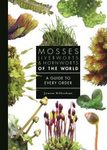"[...] The ideas presented here are novel, stimulating, and above all readable, greatly assisted, in my opinion, by the use of explanatory diagrams. Mathematical formulations are present, but the bulk of this approach is held in appendices so that it does not interfere the verbal and visual development of the themes. It is a book well worthy of wide attention."
– Peter Moore, The Bulletin of the British Ecological Society 46(1), March 2015
"[A]ll ecologists will benefit from reading [Mutualistic Networks], giving this audience a better understanding of the network perspective on mutualism."
– Choice
"Making a case for why we should care about mutualisms and their complex networks, this book offers a new perspective on the study and synthesis of this growing area for ecologists and evolutionary biologists. It will serve as the standard reference for any future work on mutualistic interactions in biological communities."
– Biotechnology, Agronomy, Society and Environment
"[W]hile this book is a must read for anyone studying dogs, anyone studying wildlife in areas where dogs occur will also want to read this book and consider the impacts dogs may be having within their study system."
– Julie K. Young, Ecological Society of America
"Mutualistic Networks is a book that presents a highly dynamic field in its entire breadth and historic development. [A]nyone interested in a passionate layout of a multifaceted and ecologically exciting research area will want to read it."
– Carsten F. Dormann, Basic and Applied Ecology
"Until recently, the study of mutualism was replete with lovely natural history details, but largely divorced from ecological theory. In this fine book, Bascompte and Jordano take an important step toward rectifying this situation, by applying a rich array of network tools and phylogenetically informed analyses to webs of mutualistic interactions. The authors deftly synthesize a wide range of empirical case studies and theoretical perspectives, draw a number of intriguing and unexpected conclusions, and provide useful, detailed methodological appendices which will facilitate future studies of mutualism in a community context."
– Robert D. Holt, University of Florida
"This engaging book is required reading for anyone interested in how the web of life is organized. With impeccable scholarship, a broad and careful presentation, and nuanced interpretation, it probes deep questions about the structure of biodiversity, and weaves innovative approaches with insightful interpretations."
– John Thompson, University of California, Santa Cruz
"This useful book examines the structure of mutualistic networks by delving into emerging structures from mutualistic network research, explaining what drives the structure, and investigating its implications on the robustness of ecological communities. Comprehensively reviewing this important field, this work will find a significant readership and promote further research."
– Kevin McCann, University of Guelph










































